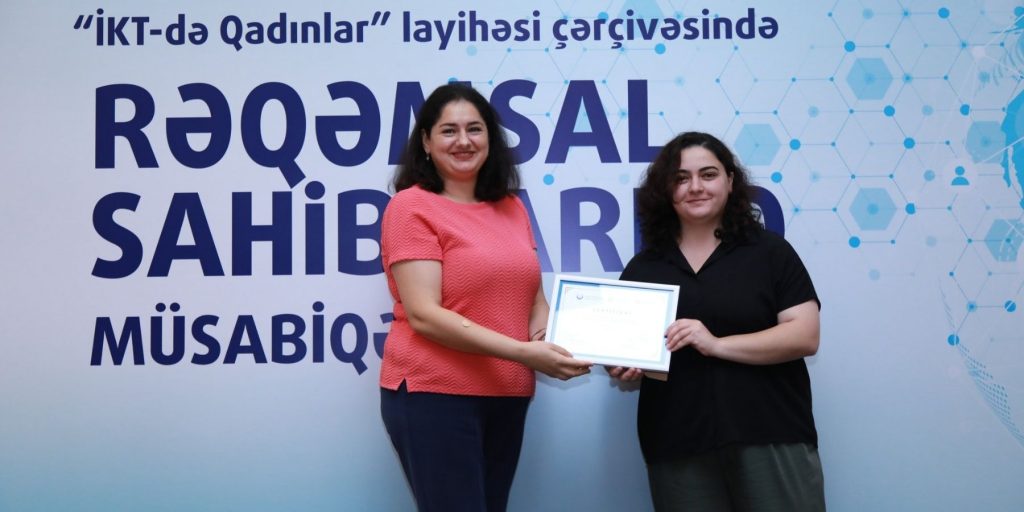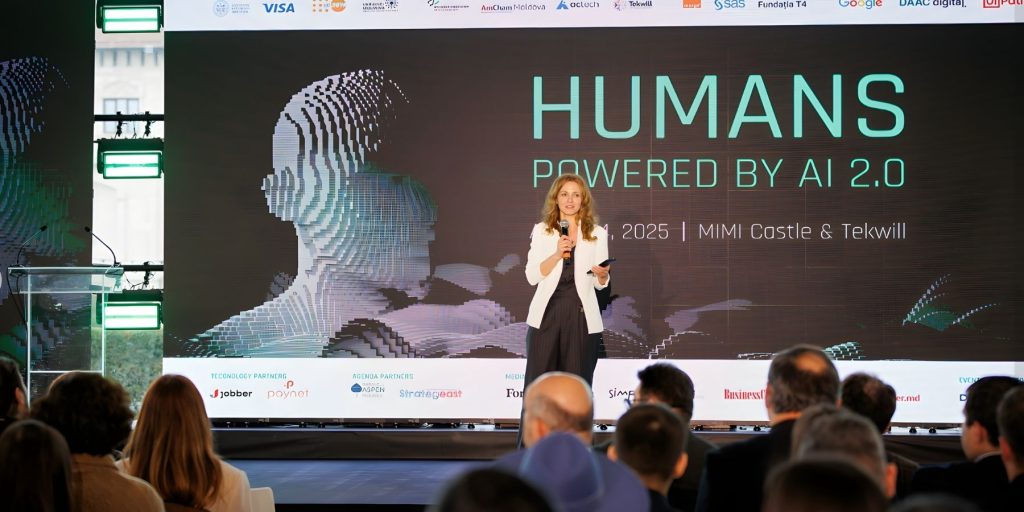
On their own terms
How women entrepreneurs are building their way forward
The entrepreneurial dream sells itself with seductive promises: autonomy, impact, unlimited potential. The reality involves overcoming obstacles rarely mentioned. For women, these challenges—burnout, family sacrifice, and capital constraints—form a triple tax that demands creative solutions. This price of admission, however, is increasingly being paid with confidence and ingenuity.
At the She’s Next Hackathon 2025, organised by Visa and Reinvantage, three founders shared remarkably candid accounts of how they have confronted and overcome precisely these barriers. Their experiences demonstrate that anything is possible.
Victoria Victorova built a team of co-founders to distribute the load. Sylwia Ziemacka redefined parental roles to pursue her ambitions without apology. Adriana Danaila bypassed traditional funding entirely to build on her own terms. Each faced the triple tax. Each found a way through.
The body keeps score
Victoria Victorova knows burnout intimately. As an entrepreneur and mental health ambassador, she has spent nearly a decade building her mental health platform, MindFit. She has also spent that decade repeatedly pushing herself to the brink of collapse.
“There have been so many times when I’ve gotten myself to the point of burnout,” she explains. The warning signs are visceral: weekends arrive with grand plans for productivity, but her body simply refuses to cooperate. “I’ll be staring blankly at a wall. That’s when I know I have reached the point of burnout.”
This is not mere fatigue. Entrepreneurs who don’t prioritise personal time are more likely to report high levels of burnout, and solo-entrepreneurs experience burnout more frequently than those with business partners. Victorova’s solution was structural rather than inspirational: she assembled a team of five co-founders, four of whom are women. When one founder hits the wall, others shoulder the load. She also now tries to structure her workdays. “It’s almost nine to five,” she says. “Of course, it’s more flexible, but I try to spend the evenings with my family, I try to spend the weekends doing something else.”
The imposter syndrome that often accompanies burnout strikes women with particular ferocity. Far more women struggle with imposter syndrome, compared with men. Victorova has won international awards yet still defaults to thinking they’re “not such a big deal.” This mental discount applies not only to past achievements but to future possibilities. She observes how male counterparts pitch with swagger whilst she and many female founders undersell themselves, allowing investors to sense their uncertainty.
Her advice to younger founders reveals the depth of the problem: don’t trust social media’s glossy façade, force yourself to accept compliments without deflecting them, and become a mentor. “When you share your experience,” she notes, “and see how much change you bring to their life directly, it definitely shows you you’re not an imposter, you just have very high standards for yourself.”
The motherhood markdown
Sylwia Ziemacka defies the expected narrative. As CEO of Share the Care Foundation and mother to four sons, she returned to work six months after each birth. Her husband took parental leave. She loves working. She makes no apologies.
Yet even her confidence cannot erase what economists have termed the “motherhood penalty,” whereby working mothers earn less than working fathers. The penalty persists even for women who have never reduced their hours or left the workforce.
Then there are other responsibilities: in most dual-income families with young children across the world, mothers still shoulder the burden of childcare. The answer, Ziemacka suggests, lies in early engagement. “If you engage your partner early on, and he’s taking parental leave, then he’ll keep being engaged.”
Judgement comes from unexpected quarters. Business trips prompt the inevitable question: “Who’s taking care of your kids?” (for women at least—men are never asked). Older relatives express horror that fathers might take parental leave—”it’s not a masculine thing.” But Ziemacka has developed an effective defence: confidence. When you know what you want and refuse to waver, people stop trying to load guilt on you. “If you are a tough person,” she observes, “people don’t try to build guilt in you, because they know that it won’t work.”
She rejects the cult of quantity over quality. Her eldest son is 16, independent, and thriving. “Quality time is not necessarily a lot of time,” she insists. More importantly, parenting builds precisely the skills that employers claim to value: patience, multitasking, focus, communication. Maternity leave, Ziemacka argues, is not “time off” but intensive skills training in an unforgiving environment.
The capital ceiling
Adriana Danaila has been a freelance illustrator and art director for 14 years. She has never scaled to an agency, never hired employees, never sought venture capital. This is not failure—it is choice. But it is a choice shaped by gendered assumptions about what success looks like and who deserves resources to achieve it.
At current rates of improvement, gender parity in venture capital allocation will not arrive until approximately 2065. The gap compounds at every stage. Women founders highlight past accomplishments; male founders emphasise future potential. Investors reward the latter.
Danaila’s most difficult financial decision has been the courage to step back from client work to strategise. Fear of disappearing, of being forgotten, of missing the “momentum” keeps many women—and particularly women entrepreneurs—on the hamster wheel. But every time she has taken a break, new opportunities have emerged. “I think we are in an overflow of opportunities today,” she says. The fear, she argues, is a myth.
Her path forward bypasses traditional venture capital entirely. She is building a community on LinkedIn, sharing her journey, preparing courses and digital products. When her audience sees her fail and win in real time, they become invested—financially and emotionally. This is the future she foresees: solopreneurs supported by communities rather than extracted by institutional investors.
She also challenges a pernicious myth about money and femininity. “Money is not feminine” is a mindset she has had to unlearn. In reality, when she earned less, everyone around her suffered—her hairdresser, her local organic grocer, her friends’ businesses. “Making money, especially as a woman,” she argues, “you can really make a change.” Her advice is blunt: learn personal finance, build wealth, invest.
For eight years, Danaila earned 2,000 euros monthly because that seemed “rich” in her Romanian context. Then she discovered others were earning far more. Once she began charging for value rather than geography, she earned more by working less. “Work smarter, not harder,” she says—a Gen Z mantra that applies beautifully to money mindset.
The reckoning
The entrepreneurial path, as currently constructed, extracts a surcharge from women at every turn. Burnout. Family sacrifice. Capital starvation. These are not unfortunate side effects but features of a system designed when only men were expected to build companies.
The three women who featured in the She’s Next Hackathon have arrived at different solutions: Victorova’s co-founder model, Ziemacka’s shared parental leave, Danaila’s community-funded independence. What unites them is a refusal to accept that the current system is inevitable.
—
This article draws on insights from She’s Next Hackathon fireside chats with Victoria Victorova (entrepreneur and mental health ambassador), Sylwia Ziemacka (CEO, Share the Care Foundation), and Adriana Danaila (entrepreneur, art director, and illustrator).
New Free Courses — Made for Ambitious Women Entrepreneurs!
It’s time to grow smarter, adapt faster, and take your business global.
Explore two powerful courses available exclusively to She’s Next members:
The Reinvention Masterclass for Start-up Founders
Beyond Borders: Building for Global Success
Enroll today — it’s free!





